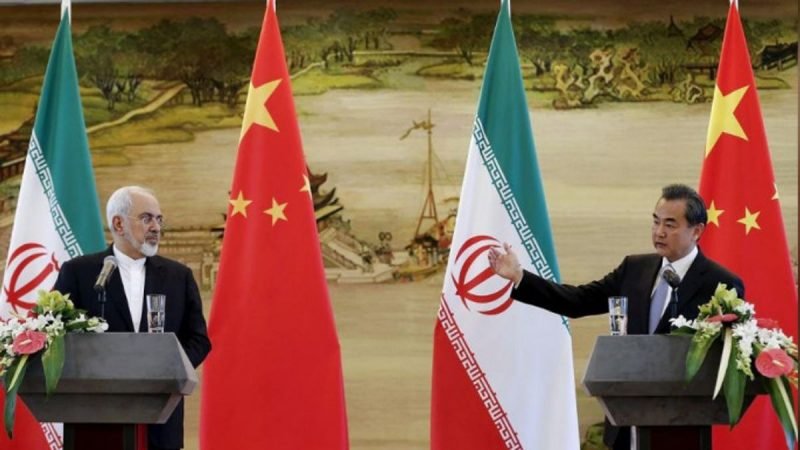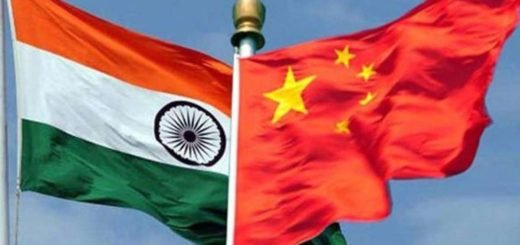Prophesied Pact between Iran and China – Impacts on Pakistan

Recently, a leaked trade and military agreement, namely “Comprehensive plan for cooperation between Iran and China” spills beans on various developments Iran is engaged in on a geopolitical level. The draft agreement started doing rounds on the internet, in early June. According to the leaked agreement, Tehran and Beijing have finalised a trade agreement cost $400 Million and focuses mainly on economic and security related issues, in addition to massive infrastructure spending. Moreover, the agreement also envisions closer cooperation in defence and intelligence sharing, that is set to gain immense intensity in this geopolitically significant region.
The pact that envisions holistic relations between the countries also, comes with a third member – Pakistan. Pro-China Pakistan will try to tap this opportunity to its benefit thus, taking every advantage of its relationship with China. Pakistan has so much in store left, with India’s moving away from Iran after The U.S. sanctions on the country. Countries were once favouring the Middle-East as the most strategically important zone in energy demand. However, these favourable dynamics have drastically changed, with the world on the cusp of breaking century-long unipolarity and centralisation of power. Iran now takes this position for China, with its abundant oil resources, owing to its presence near the Caspian Sea and the Arabian Gulf. With the ongoing CPEC project, under the umbrella of BRI, Beijing engages in an act to attain global hegemony through various pacts it signed with several countries. Iran is also an equal beneficiary from the Belt and Road Initiative. However, it is assumed that this trade deal will resemble every other trade pact that China has with many countries.

The amount that is agreed to be spent on the pact dwarfs the amount spent on CPEC by Beijing, a flagship of the BRI. Beijing is exploiting Tehran’s growing desperation exacerbated by Covid-19 on health and economic crisis. Both the countries see the deal hugely beneficial but also as a potential gimmick to confront the huge dominance that The U.S. has in the Middle East region. CPEC, the flagship project is gaining momentum in terms of its growth and completion speed. With the already signed Hydro-Power pact between both the countries, which will, in turn, result in an increase in the cumulative value and net worth of the project. The CPEC’s worth has grown multi-fold over the years and is only expected to grow further, with the current value of the deal lying at $70 Billion.
Secondly, China developing the Chabahar port, which is located 45 miles away from Pakistan’s Gwadar port could be beneficial to the group of countries hugely. Iran’s electricity MOU with Pakistan is only set to improve the relations and trade between the countries.

Third, the introduction of Iran in the BRI would just mean securing Baluchistan- The main region that the corridor mainly runs, and mainly faces instability from Iran due to cross-border attacks. This means for Beijing, neutralising the security threat posed by Iran, which in turn would be highly beneficial for Islamabad in several ways. According to the draft agreement, the energy produced would be exported to neighbouring countries. Any plans for a Pakistan-Iran-China oil and gas pipeline could also help secure energy reserves. In addition, the transport routes being planned within Iran could also link up with CPEC and enhance connectivity.
Notably, the draft also mentions that China and Iran will upgrade bilateral and regional engagement with neighbouring countries and there would be “cooperation in developing industrial/service/technology centres in ports and islands, chosen with the aim of joint production and export of services and goods to regional countries.” Thus, some of the projects should work out to Pakistan’s benefit if the strategic partnership under discussion with China does materialize.
Realistically, Iran is under intense pressure as it faces an economic crisis due to sanctions on its oil exports along with the Covid-19 pandemic. Iran will try to leverage the trouble it faces from the U.S. Essentially; this pact will mean strengthening relations between countries with similar interests that result in harnessed interests of each of the members.


















